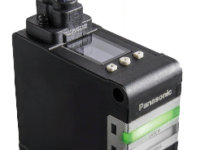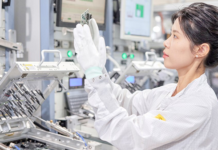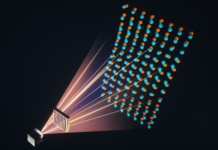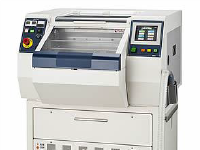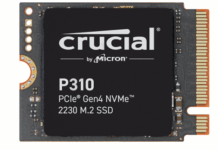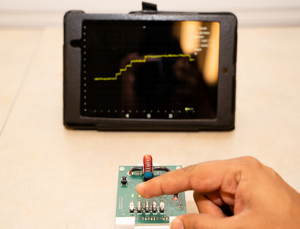
Purdue University researchers have developed a sensing technology which is Magnetoresistive sensors that work with the machine learning algorithm to provide precision for applications like manufacturing, electric vehicles and smart homes.
The non-invasive sensor module suppresses noise by increasing signal sensitivity with the help of unique noise shaping technique. All existing, highly sensitive sensor are invasive in nature but the recently developed sensor is noninvasive thus easy to install and maintain.
The developed sensor module works by monitoring electric currents in non-invasive fashion with a huge dynamic range from a few milli Amps to hundreds of Amps . According to Kaushik Roy, Purdue’s Edward G. Tiedemann Jr. Distinguished Professor of Electrical and Computer Engineering, It is first of its kind current sensor which is safe, non-invasive and much more precise than other available options.
In applications such as electric vehicles, resistor or non-invasive Hall sensor is used for current sensing but they fail to measure small currents. The research team solves this issue by using machine learning algorithm with the sensor to help interpret and gather data such as energy usage, problems with the current and the best approaches to manufacturing.
As stated by Byunghoo Jung, a professor of electrical and computer engineering in Purdue’s College of Engineering, the sensor module integrated with machine learning could train manufacturing robots, help to diagnose issues with electric vehicles and scooters along with this it can also help to cut down energy usage at homes by providing precise tips.
Roy said other advantages of the Purdue sensor include easy installation and maintenance, since the small sensor is wrapped around a central wire to monitor the current.
The sensor can transmit the measured current information to any computing system through Bluetooth, USB or other methods, and can be trained through machine learning to detect something as precise as the brand of microwave being used at a certain time and if that time of day is optimal for energy consumption.
The team has worked with the Purdue Research Foundation Office of Technology Commercialization to patent the technology. They are looking for partners to license the technology. For more information on licensing and other opportunities, contact Matt Halladay from OTC at MRHalladay@prf.org.



